Přednášející konference 2025 III.
ANGLICKÁ SEKCE
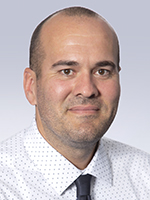 Matthew Dagan - Uncovering Hidden Talents: The Role of Spatial Reasoning in Student Talent Identification
Matthew Dagan - Uncovering Hidden Talents: The Role of Spatial Reasoning in Student Talent Identification
Spatial reasoning is a vital yet often overlooked cognitive skill with significant implications in STEM, art, and design. This session highlights its role in talent identification and equips educators to recognize and nurture hidden potential while redefining talent with an emphasis on student success and wellbeing. Attendees will explore research on spatial reasoning's significance in cognitive development, school performance, and future achievement. The presentation will share insights from Riverside's development of its Student Portraits Application and provide practical assessment tools for identifying spatial reasoning abilities. Participants will also engage in discussions on strategies to effectively foster these skills in diverse learning environments.
Matthew Dagan is an experienced educator with over 20 years in teaching and leadership across the U.S. and internationally. Holding dual M.Ed degrees, he is committed to inclusive education and leads as Primary Principal at Riverside International School Prague. Matthew also contributes globally through participation with NEASC accreditation teams, collaborating with school leaders, promoting school improvement and fostering dynamic learning environments.
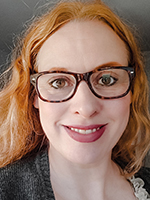
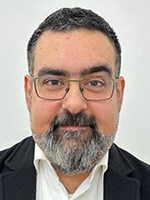 “Rosenrot” M. Schülpke & Rajeh Khazaal - The Student is the Curriculum
“Rosenrot” M. Schülpke & Rajeh Khazaal - The Student is the Curriculum
Personalized forms of learning that do not require a fixed curriculum allow learning to be approached in particular depth or breadth and to take advantage of the flexibility of time. Such learning activities can be legitimized via process-oriented recognition procedures and thus made connectable. In this presentation, one such method, the full circle learning developed by Clonlara School, will be presented using examples from the everyday lives of over 2200 students in the international off-campus program. Building on this foundation, Rajeh will contribute insights from his hands-on experience implementing Clonlara’s full circle learning model, particularly in working with a gifted child. This approach enabled the customization of learning trajectories to match the student’s advanced capabilities, fostering deeper intellectual engagement while maintaining flexibility. By emphasizing learner agency and adaptability, Clonlara’s methodology addresses diverse educational needs, including exceptional talent development.
“Rosenrot” Mireille Schülpke is certified in Steiner Education and holds a Master’s degree in Pedagogical Research from Alanus University of Arts and Social Sciences in Germany. She followed the unschooling approach to education with her own children, who are now independent young adults. She held the position of German Program Director for Clonlara School’s Off-Campus Program from 2014 to 2023 and is now Clonlara’s Pedagogical Research Director. She founded the creative children’s project, “Tajaluna,” and was awarded the French “Trophée national de l'entrepreneuriat au féminin" for her work on this project in 2015.
Rajeh Khazaal Member of the organization's conference team and in charge of the English programme. BBA (E-Business) American University in Dubai, and an iMBA (Artificial Intelligence) European University College Brussels . Dedicated Homeschooling Teacher, Mentor, Researcher and Consultant in 'giftedness and the gifted child'. Through his ongoing specialized experience and work with giftedness he delves into the sophisticated world of habits and the profound significance in the gifted child. Through empirical research as a mentor and homeschooler, he underscores the pivotal role played by mentors and teachers by transcending the traditional roles of caregivers. Becoming a powerful guide and catalyst in empowering gifted children, fostering growth, and nurturing their boundless potential.
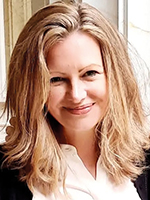 Francesca White - Exploring Inclusive Education: A Brief History and Emerging Considerations
Francesca White - Exploring Inclusive Education: A Brief History and Emerging Considerations
What does it mean to be an inclusive teacher? How do we even define inclusion? The concept of inclusive education has had to evolve since the 1994 UNESCO Salamanca Statement, but where are we now? This session explores the progress made and the challenges that remain, focusing on gaps in teacher training, curriculum limitations, and adapting strategies for SEND students. This is a huge topic, so to narrow the field we'll look at both current research and real-world experience to discuss practical ways of improving children's access to curriculum content and their independence in the classroom. Join the discussion, share your experiences, and leave with actionable ideas to create more inclusive environments.
Francesca White is a British primary school teacher and SENCO at Riverside Primary School. A qualified dyslexia specialist, she has experience teaching children with a wide range of specific learning difficulties and complex needs. Committed to ensuring SEND students have access to purposeful learning, Fran is passionate about supporting both children and staff in creating an inclusive learning environment which upholds every child's right to quality education.
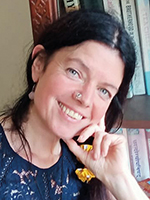 Adi Vickers - Teaching and learning from 'wholeness': A whole school approach
Adi Vickers - Teaching and learning from 'wholeness': A whole school approach
Curruli, syllabi, and lessons could be outwardly very 'holistic'—the school could have a meditation space or yoga room, the walls would be full of creative artwork, the corridors would be full of music, and individual lessons could cater to multiple intelligences and different learning styles. But if teachers, students, and administrative staff were still operating from a divided or fragmented self, then sooner or later, the school's activities would become mechanistic again. If educators and school staff members do not become aware of their inner landscapes and nurture their whole selves, teenagers and children will start absorbing the adults' inconsistencies, incongruence, and incoherence and reflect this fragmentation in the classroom and beyond. This will ultimately unravel the holistic fabric of the school. To resolve this contradiction, I have used an ' Integral Life Practice' approach when working with educators and administrative staff in Ireland and India. My presentation will illustrate how Integral Life Practice approaches can be applied in schools and educational programmes in different cultural settings.
Adi Vickers co-founded the Asana International School in Ireland, which specializes in holistic and transformative education. She trained as a Rogerian counsellor, NLP practitioner and hypnotherapist and has experience as an educator in Ireland, Italy, Spain, Laos and India in state, private and international schools. She set up and delivered a voluntary teacher training programme in India for four years and prepared and delivered an online 'Integrative practice for heart-centred teachers' programme for facilitators and educators at Ireland's first democratic school as a part of the Alef Trust's Conscious Community Project. She is currently involved in setting up an educational NGO and school in India, A Place For Us. Her current PhD research focuses on 'Transpersonal approaches to second level education'.
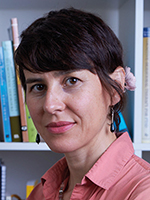 Désirée Gonzalo - A new culture of self-care education
Désirée Gonzalo - A new culture of self-care education
In this presentation we will question the great gap in self-care education in the school system, arguing that this is possibly the most important skill to acquire for a balanced and healthy life as well as a requisite to fulfil our human potential. The ways to integrate content and practices in the area of self-care into the school curriculum and culture will be proposed.
Désirée Gonzalo - Reconnecting with your own Inner Child, Connecting with Children
